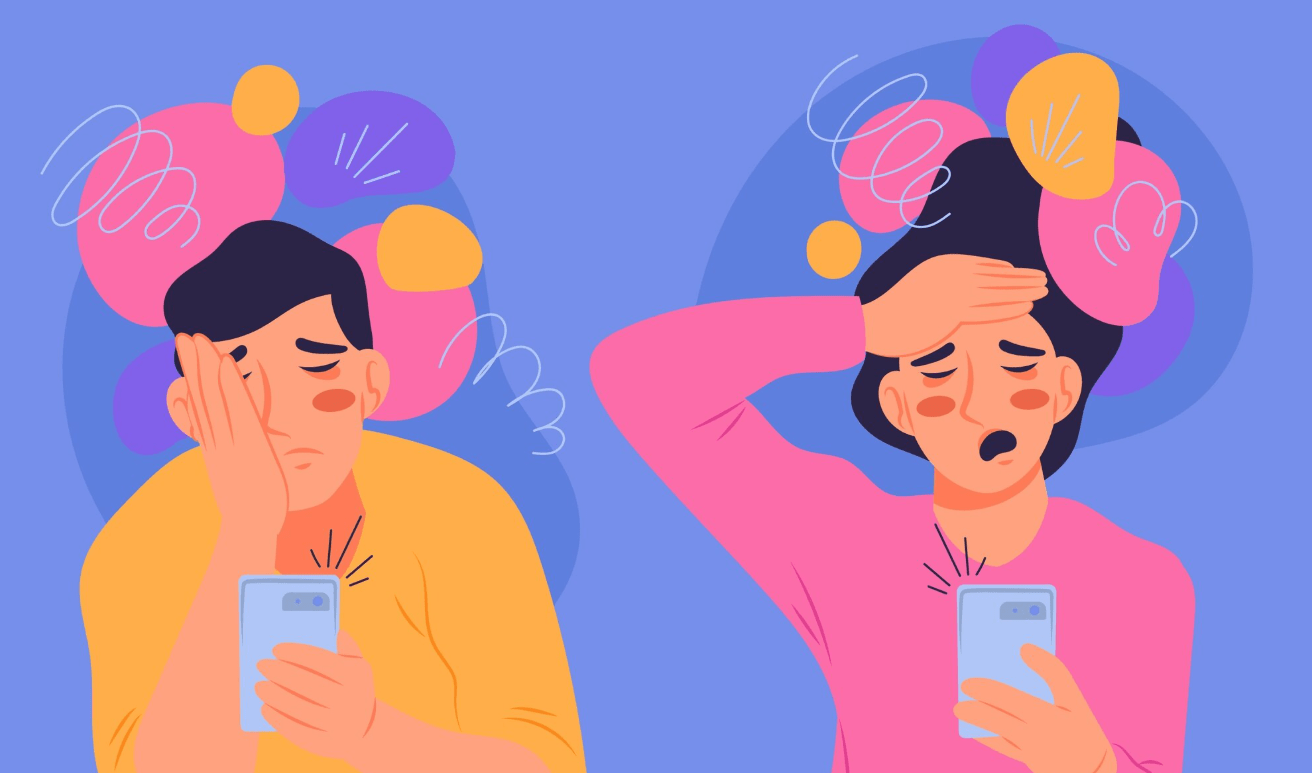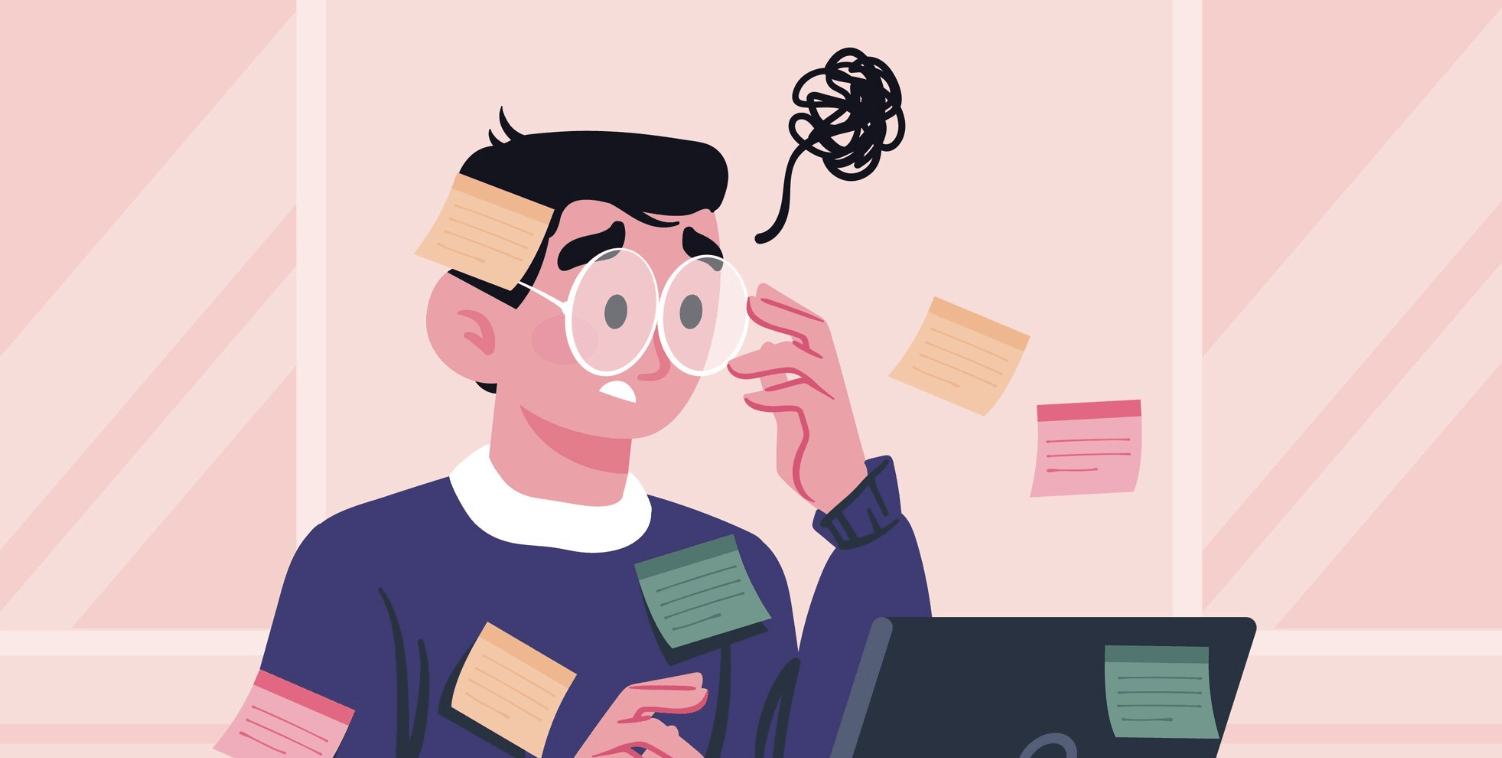What Is Brain Fog and How Can You Treat It Naturally?

Almost everyone has experienced moments when their mind feels cloudy - words slip away, tasks take longer, and focus feels out of reach. This state of mental haziness is often described as brain fog. While not a medical diagnosis, brain fog can affect thinking, memory, and productivity in ways that impact everyday life. Fortunately, there are effective, natural ways to treat and prevent it, from improving sleep and nutrition to training your brain with cognitive exercises like those in the Moadly app.
Understanding Brain Fog
Brain fog refers to a collection of cognitive symptoms, not a single condition. People experiencing it often describe feeling mentally slow, distracted, or unable to recall simple things. It’s as if your brain is trying to operate through a heavy mist - you can function, but everything feels harder than it should be.
Common symptoms include:
- Difficulty concentrating or staying focused
- Short-term memory lapses
- Mental fatigue even after light tasks
- Slower thinking or decision-making
- Feeling detached or unmotivated
Brain fog itself is not a disease but a signal from your body that something is off - whether that’s stress, poor sleep, lack of nutrients, or reduced cognitive engagement. Understanding its causes is the first step toward finding lasting relief.
What Causes Brain Fog?
Brain fog can stem from a combination of physical, psychological, and environmental factors. Some of the most common include:
1. Lack of Quality Sleep
When you don’t get enough deep sleep, your brain misses the chance to consolidate memories, regulate hormones, and clear out toxins. Over time, even mild sleep deprivation can reduce focus and recall. Aim for 7–9 hours of restful sleep each night to keep your mind sharp.
2. Chronic Stress
Stress increases the hormone cortisol, which, in high levels, can impair memory and slow down cognitive function. Prolonged stress also depletes mental energy and makes it harder to focus. Practicing relaxation techniques such as deep breathing or mindfulness can help reduce its effects.
3. Poor Nutrition
Your brain consumes about 20% of your body’s total energy. Diets low in essential nutrients - like omega-3 fatty acids, B vitamins, and antioxidants - can leave you mentally sluggish. Staying hydrated and choosing whole foods such as leafy greens, berries, and fatty fish can make a noticeable difference in mental clarity.
4. Sedentary Lifestyle
Physical activity increases blood flow and oxygen to the brain. Without it, mental sharpness declines. Studies have shown that moderate exercise, such as walking or cycling, can improve cognitive function and mood. Even a 20-minute walk can help lift that foggy feeling.
5. Digital Overload
Spending hours switching between apps, messages, and notifications can fragment attention and lead to cognitive fatigue. Reducing screen time and practicing digital mindfulness - like taking scheduled breaks - helps your brain recover focus.

6. Illness or Medication
Conditions such as thyroid imbalance, diabetes, or post-viral fatigue (including COVID-related brain fog) can cause temporary cognitive cloudiness. Certain medications can also slow mental function. If you suspect a medical cause, consult your doctor.
How to Treat Brain Fog Naturally
While the causes can vary, most cases of brain fog can be improved naturally through lifestyle adjustments and brain training. The following strategies are proven to enhance focus, boost memory, and restore mental energy.
1. Prioritize Sleep Quality
Sleep is the brain’s natural reset button. To reduce brain fog:
- Stick to consistent sleep and wake times
- Avoid screens an hour before bed
- Keep your bedroom cool and dark
- Limit caffeine after midday
Restful sleep enhances memory consolidation and focus - the very functions that become impaired during brain fog.
2. Eat for Cognitive Health
A balanced diet fuels clearer thinking. The Mediterranean diet, rich in fruits, vegetables, whole grains, and healthy fats, is particularly beneficial. Foods like blueberries, walnuts, and salmon have been linked to improved brain performance. Hydration also matters: even mild dehydration can reduce attention span and mental accuracy.
3. Exercise Regularly
Exercise increases the production of neurotrophic factors - proteins that support neuron growth and communication. Physical activity also enhances circulation, delivering more oxygen and nutrients to the brain. For older adults, regular movement can even help keep the brain sharp during retirement.
4. Manage Stress
Chronic stress is one of the most underestimated contributors to brain fog. Mindfulness meditation, journaling, and spending time in nature are all effective ways to calm the mind. You don’t have to spend hours meditating - even five minutes a day can help lower stress hormones and improve focus.

5. Train Your Brain
The brain is like a muscle - it strengthens with use. Engaging in regular mental exercises can significantly reduce brain fog symptoms and improve both short- and long-term memory. This is where digital brain training apps like Moadly can help.
Moadly offers scientifically designed memory and attention games that adapt to your skill level, helping you gradually rebuild focus and mental flexibility. Studies on neuroplasticity show that structured brain exercises can enhance connections between neurons, effectively clearing cognitive “fog.”
Unlike generic puzzle apps, Moadly focuses on strengthening specific cognitive areas such as working memory, problem-solving, and sustained attention - skills directly affected by brain fog. Whether you’re recovering from burnout, aging-related forgetfulness, or post-illness fatigue, Moadly provides a safe, engaging way to retrain your mind naturally.
For instance, those using Moadly to manage COVID-related fatigue may also benefit from reading: Free App to Get Rid of COVID Brain Fog.
6. Stay Socially and Mentally Active
Isolation and boredom can dull cognitive sharpness. Engaging in social activities, learning a new skill, or even trying a new hobby stimulates the brain and improves emotional well-being. Brain fog often lifts faster when the mind stays active and connected.
7. Limit Toxins and Alcohol
Excess alcohol, processed foods, and smoking can damage neurons and slow brain metabolism. Reducing these habits allows your brain’s natural healing systems to work better. Opt for antioxidant-rich foods like dark chocolate, spinach, and green tea to protect against oxidative stress.
8. Balance Hormones and Blood Sugar
Hormonal imbalances and fluctuating blood sugar can both contribute to mental fatigue. Eating smaller, balanced meals throughout the day helps keep glucose levels stable. Regular check-ups and maintaining a healthy weight support brain metabolism and clarity.
When to Seek Professional Help
While natural methods often work, persistent brain fog can signal an underlying medical issue. If you experience ongoing confusion, memory loss, or difficulty performing daily tasks, speak to a healthcare provider. Identifying and addressing root causes early makes a big difference in long-term cognitive health.
Using Brain Training Apps Like Moadly for Recovery
One of the most promising natural interventions for brain fog is cognitive training. Apps like Moadly offer exercises designed to improve memory, focus, and reaction time without requiring medication or supplements.
Unlike typical games, Moadly’s exercises are grounded in neuroscience research. Regular use can strengthen neural pathways that weaken under stress or inactivity. For older adults, memory-focused activities may even help prevent cognitive decline and improve daily performance.
Even if you’re younger, consistent brain workouts enhance resilience against mental fatigue, improve multitasking, and sharpen recall. You can explore related insights in this post about free non-subscription memory apps.

Long-Term Brain Health Habits
Preventing brain fog isn’t about quick fixes - it’s about building sustainable habits that nourish both body and mind. Here are key long-term strategies:
- Consistency: Train your brain a few minutes daily with Moadly or similar cognitive exercises.
- Balanced lifestyle: Prioritize sleep, exercise, and a nutrient-rich diet.
- Mindfulness: Incorporate relaxation and gratitude into your daily routine.
- Lifelong learning: Challenge your mind with new skills, languages, or hobbies.
Over time, these habits compound to create noticeable improvements in memory, mood, and energy levels - all essential for keeping your brain clear and alert.
Conclusion
Brain fog can make even simple tasks feel overwhelming, but it’s not permanent. By addressing its causes and adopting natural treatments - better sleep, exercise, nutrition, stress management, and mental training - you can restore your clarity and focus.
If you’re ready to start, the Moadly memory training app offers an easy, accessible way to retrain your mind, one game at a time. Whether you’re recovering from stress, aging, or post-illness fatigue, Moadly helps your brain feel sharper, lighter, and more alive.
Stay consistent, stay curious, and keep your brain active - because clarity isnt lost forever. It just needs the right kind of exercise to shine again.
References
- National Institutes of Health – Cognitive Health and Older Adults
- Harvard Health Publishing – Understanding Brain Fog and Mental Fatigue
- Cleveland Clinic – Causes and Treatment of Brain Fog

